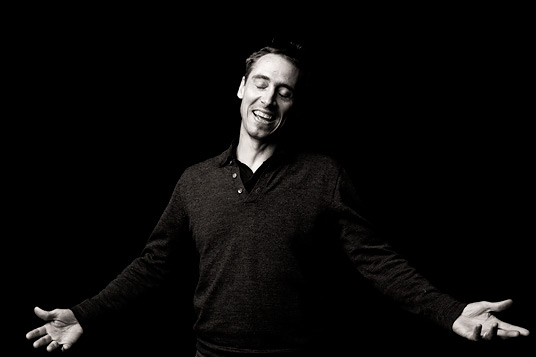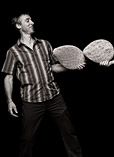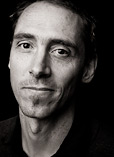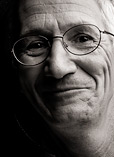
Josh Tewksbury
An exciting time to be a naturalist
THEMES: Challenges & Opportunities, Society, Technology | WORKSHOP: Synthesis
Biography
Josh Tewksbury
Josh grew up on farms, went to a high-school with a 3,000 acre campus composed mostly of oak trees, and spent his undergraduate career learning natural history at Prescott College, focusing on butterflies, plants and birds. Studies of birds sustained him through graduate school in Montana, and his inability to stop looking at plants (in particular, chili peppers) led him through a couple of post-docs and on to the University of Washington. He has been there since, working primarily on interactions between plants, animals, and their environment. He is an ecologist, a naturalist, and a conservation biologist; co-founder and board member of the Natural History Network, co-director of the Ecology of Bird Loss Project, and founder and chair of the natural history section at the Ecological Society of America. His research centers on the study of mechanism, process and context, and has spanned studies of fragmentation, connectivity, climate change, food security, and the consequences of lost mutualisms.Conversations:
- A predictive science
- Binoculars of our age
- The first human endeavor
- Ten thousand pictures
- An exciting time to be a naturalist
Workshops:
Transcript
I feel that it's an incredibly exciting time to be a naturalist, perhaps the most exciting time to be a naturalist that has ever existed on this planet. And I think the opportunities for naturalists today far exceed what they have ever been in the past, and that the possibility of discovery today is far greater than it ever has been in the past. We have still only scratched the surface of what's out there, most of the work that needs to be done is natural history and the urgency of that work is increasing every year. It's becoming more and more relevant to policy, and to culture and to the future of our societies and that's becoming more clear.
The other point I want to make is just that we are now able to do incredible things by being small. I can have my observation of these 16 or 20 or 50 plants that I've observed here, combined with hundreds then thousands then tens of thousands of other peoples' somewhat meaningless observations, to become very meaningful. Because suddenly the casual observation of the grizzly bear in the Park is accompanied with a digital photo on an iphone, which changes Park management. Never possible before that, already happened here.
The same kind of thing is going to happen in species discovery, in range discovery, in changes of ranges because of climate change, and it's going to be citizens with technology that are now the leading edge of natural history. The line between scientist and citizen is going to start blurring, what is an expert will be changing and you will no longer have to have a PhD to be an expert in your field, because the means of communication and identification are no longer go to the white-bearded expert with a PhD. It's go to the social network where the answer is.


